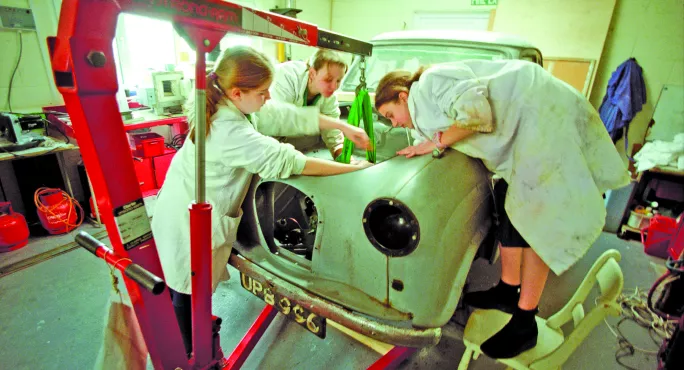
Government spent £15m on UTCs that closed or did not open

More than £15 million has been spent on university technical colleges (UTCs) that were shut down or never opened at all, TES can reveal.
The new figures have prompted calls from the Association of Colleges (AoC) for all open and proposed UTCs to be included in area reviews of post-16 provision across England.
Two colleges, Black Country UTC and Hackney UTC, opened in 2011 and 2012 respectively before closing last month; a further two, Birkenhead UTC and UTC Liverpool Engineering and Logistics, were planned but never opened.
New figures from the Department for Education reveal that these UTCs collectively received more than £3.1 million in revenue funding. Combined with capital funding allocations of £9.5 million for Black Country UTC and £3.3 million for Hackney UTC, the failed institutions received a total of £15.9 million.
The University and College Union (UCU) said the costs served as a reminder of the need to “shore up our colleges’ finances, not seek risky alternatives”.
The DfE told TES it was in the process of trying to recover funding allocated to the now closed Black Country and Hackney colleges. Hackney UTC - of which the Duke of York was a patron (see panel, right) - blamed a fall in student numbers for its closure.
The Black Country UTC was criticised in an Ofsted report for weak teaching, below-average standards of achievement, poor behaviour and low levels of attendance. Its revenue funding amounted to a pre-opening grant of £742,070 and an additional £1,043,668 after it opened.
Hackney received £470,793 as a pre-opening grant and a further £608,596 after it opened. In addition, Birkenhead UTC, which was due to open in 2013, received a pre-opening grant of £10,899, while UTC Liverpool Engineering and Logistics, which was meant to open in 2014, was given £245,868.
FE sector bodies questioned whether UTCs should be given public funds in an era of budget cuts.
“Many UTCs offer similar courses and curriculums to those offered by existing further education colleges, so there is already the risk of costly duplication,” said UCU general secretary Sally Hunt. “These figures also reveal how much money has been [spent] on colleges that close down within a couple of years or don’t even open. At a time when further education is facing yet further pressures on its finances, it is time to shore up our colleges’ finances, not seek risky alternatives.”
Julian Gravatt, assistant chief executive of the AoC, described UTCs as an “experiment” that had worked well in some places and less well in others.
“For any new institutions to be successful in recruiting a significant number of students, there needs to be a consistent demand across all the necessary age groups,” he said. “It would be sensible to include existing and future UTCs in the area review process which is just starting.”
The DfE said UTCs played a “key part” in helping every pupil to get the education they deserved by harnessing the talents of students, offering them hands-on learning alongside GCSEs and A-levels, and providing them with the technical knowledge and skills that employers demanded.
A spokeswoman for the DfE added: “We are firmly committed to offering more young people the opportunity to benefit from this type of learning. That’s why we are reviewing the programme to ensure it is as successful as it could be before we open the next wave of UTCs.”
Any unspent funds allocated to unopened UTCs were recovered by the DfE, she added.
The capital funding for the Hackney and Black Country UTCs was announced prior to opening. The DfE refused to supply TES with updated figures.
No decision has been made about the Black Country UTC site. The former Hackney UTC buildings are currently being leased to the Olive School, Hackney, a Muslim faith-based primary free school.
The Baker Dearing Educational Trust, which runs the UTC programme, told TES that the decision to close a college or cancel its opening was taken “very seriously”, with a “keen focus on the proper use of public money”.
In a statement, the trust said: “We were very closely involved in all four of these cases, but supported the closure decision when it became clear to us that a point had been reached when no more public money should be committed.”
It continued: “We’ve materially strengthened the support we offer UTCs, which has included a larger team with more varied experience, and building closer links with the other agencies that support UTCs.”
Register with Tes and you can read five free articles every month, plus you'll have access to our range of award-winning newsletters.
Keep reading for just £4.90 per month
You've reached your limit of free articles this month. Subscribe for £4.90 per month for three months and get:
- Unlimited access to all Tes magazine content
- Exclusive subscriber-only stories
- Award-winning email newsletters
You've reached your limit of free articles this month. Subscribe for £4.90 per month for three months and get:
- Unlimited access to all Tes magazine content
- Exclusive subscriber-only stories
- Award-winning email newsletters



